New Scientist covers the latest developments in science and technology that will impact your world. New Scientist employs and commissions the best writers in their fields from all over the world. Our editorial team provide cutting-edge news, award-winning features and reports, written in concise and clear language that puts discoveries and advances in the context of everyday life today and in the future.
Elsewhere on New Scientist
Salt solution • A simple addition to table salt could solve a serious public health problem
New Scientist International Edition
A gentle giant ready to attack
Time may be a quantum illusion • If nature is genuinely quantum, time may arise from the entanglement that links together quantum objects, reports Karmela Padavic-Callaghan
Risk of bird flu outbreak in cows causing a human pandemic is less than feared
Ancient snake drawings are the largest known rock art in the world
Device laced with living bacteria helps treat skin disease
The beauty of chaos • Stunning image reveals the intricate structure of supersonic plasma
China’s moon lander heads back to Earth
Analysis Health • Menstruation is occurring ever earlier and we’re struggling to work out why The onset of periods is happening sooner in life for younger generations in the Western world, and there could be multiple factors behind it, says Grace Wade
Giant ancient goose weighed as much as a cow
Cleaner ship emissions may warm the planet far faster than expected
Analysis Artificial intelligence • Can Google fix its disastrous new AI search tool? For decades it has been the go- to way to find information, but now the leading search engine has told people to eat rocks. What next, asks Matthew Sparkes
Babies squeal and growl with purpose as a way to prepare for speaking
Fern has a genome 50 times larger than that of humans
Snaring crisis has no easy fixes • The widespread use of animal traps in South-East Asia is a major threat to wildlife, but snare removal programmes can only do so much, reports James Woodford
‘Unlucky’ star may be trapped in dance with black hole
Tetanus vaccine might protect against Parkinson’s disease
AIs join computer bug hunt • Tools similar to ChatGPT are able to identify errors in computer code, letting people claim rewards for finding them – but there are downsides, reports Alex Wilkins
Ancient Egyptian skull shows oldest known attempt at treating cancer
Baby chicks link sounds and shapes just like we do
Racial trauma • Race is a social construct, but racism can cause real harm to both the body and the mind, says Layal Liverpool
No planet B • Turn to the trees The burgeoning use of wood as a building material is a path to more sustainable construction, and it may have psychological benefits too, writes Graham Lawton
Devilishly scary
Are you conscious? • An impressive book challenges the idea at the heart of much AI research – that simulating consciousness is identical to the real deal, says Jonathan R. Goodman
The Amazon fights back • Activist Nemonte Nenquimo’s autobiography reads like a compelling novel, but it’s really insider anthropology, says Kate Douglas
New Scientist recommends
The sci-fi column • A tale of two halves Jurassic Park and ER made Michael Crichton a household name. When he died, he left behind a manuscript, which thriller writer James Patterson was asked to finish. Does the result, Eruption, work, asks Emily H. Wilson
Your letters
The salt fix • We have a new target in our war against dietary sodium, and this one is much more palatable, finds Graham Lawton
How to boost your potassium
The happiness trap • The idea that we should always...

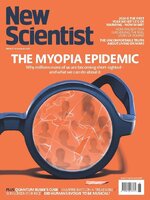 Nov 16 2024
Nov 16 2024
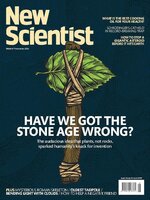 Nov 09 2024
Nov 09 2024
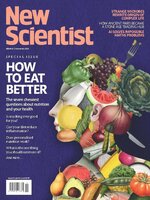 Nov 02 2024
Nov 02 2024
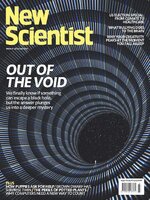 Oct 26 2024
Oct 26 2024
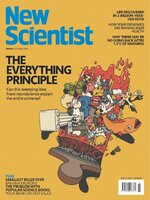 Oct 19 2024
Oct 19 2024
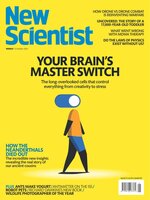 Oct 12 2024
Oct 12 2024
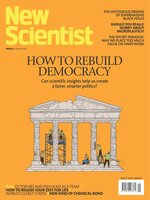 Oct 05 2024
Oct 05 2024
 Sep 28 2024
Sep 28 2024
 Sep 21 2024
Sep 21 2024
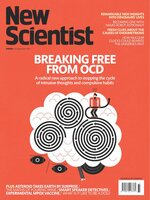 Sep 14 2024
Sep 14 2024
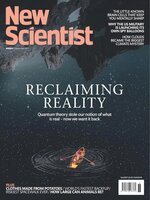 Sep 07 2024
Sep 07 2024
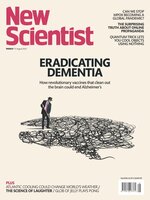 Aug 31 2024
Aug 31 2024
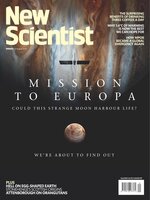 Aug 24 2024
Aug 24 2024
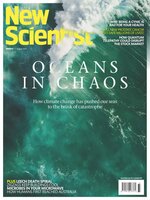 Aug 17 2024
Aug 17 2024
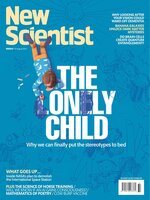 Aug 10 2024
Aug 10 2024
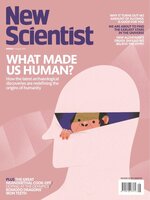 Aug 03 2024
Aug 03 2024
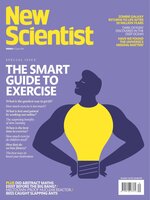 Jul 27 2024
Jul 27 2024
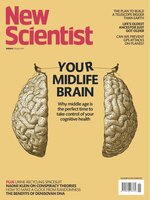 Jul 20 2024
Jul 20 2024
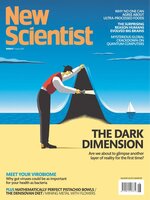 Jul 13 2024
Jul 13 2024
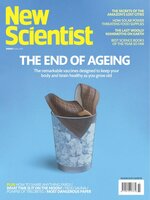 Jul 06 2024
Jul 06 2024
 Jun 29 2024
Jun 29 2024
 Jun 22 2024
Jun 22 2024
 Jun 15 2024
Jun 15 2024
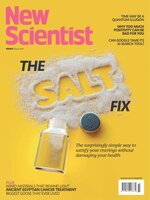 Jun 08 2024
Jun 08 2024
